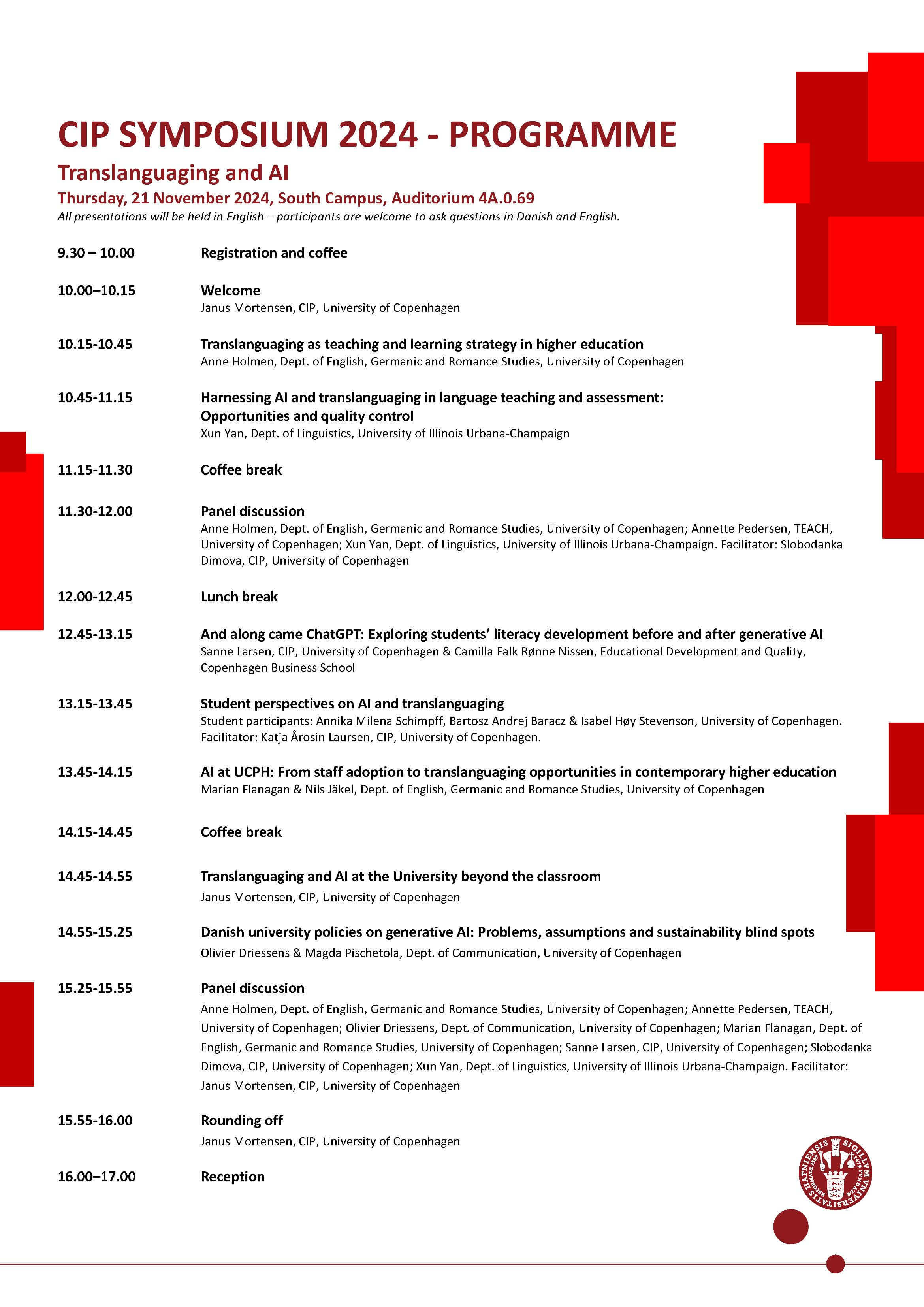CIP Symposium 2024: Translanguaging and AI
This year’s CIP symposium focuses on translanguaging and text-generative AI in relation to the international university.
What opportunities and challenges do translanguaging and text-generative AI offer for the continued development of the university as an international educational institution and as an international workplace?
What opportunities and challenges do translanguaging and text-generative AI offer for the individual student and the individual employee?
Can text-generative AI technology support translanguaging practices and multilingual communicative competence, or do we risk the technology creating (even) greater linguistic uniformity?
We will explore translanguaging and text-generative AI – separately and in conjunction and with a focus on research as well as practice – through a variety of presentations with speakers from Denmark and abroad.
The online registration for the CIP symposium 2024 has now been closed.
Late registration is possible by sending a mail to cip@hum.ku.dk
In recent years, the concept of translanguaging has opened up new perspectives on multilingualism as a resource in learning and education.
From a translanguaging perspective, multilingualism is the natural starting point for learning, including language learning. Although the concept has been criticised, it has undoubtedly helped set a new agenda for the conversation about language and education, in Denmark and beyond.
Text-generative artificial intelligence (AI) is a phenomenon that has been equally influential in shaping the conversation about language and education over the past few years. Since ChatGPT was made available to the public in late 2022 as the first example of text-generative AI technology, nothing has been the same in academia. Many have embraced the possibilities offered by the new technology; others have expressed concern as established understandings of the relationship between language, literacy and learning have been fundamentally challenged.
This year’s CIP symposium focuses on translanguaging and text-generative AI in relation to the international university.
What opportunities and challenges do translanguaging and text-generative AI offer for the continued development of the university as an international educational institution and as an international workplace?
What opportunities and challenges do translanguaging and text-generative AI offer for the individual student and the individual employee? We look at translanguaging and text-generative AI separately, but we will in particular explore the interaction between the two.
Can text-generative AI technology support translanguaging practices and multilingual communicative competence, or do we risk the technology creating (even) greater linguistic uniformity?
These questions - and many more - will form the basis of the CIP Symposium 2024.
As in previous years, the symposium will include a variety of presentation formats, and the programme will feature presentations based on research and practice, with speakers from Denmark as well as abroad.
Research projects on multilingualism and AI
CIP is carrying out two research projects relevant to this year’s symposium:
"Towards a new model of communicative competence in multilingual higher education", founded by the Independent Research Fund Denmark (2023-2027).
"AI and the University - Towards a sociolinguistics of literacy and voice in the age of generative language technology", funded by the Carlsberg Foundation (2024-2028).

